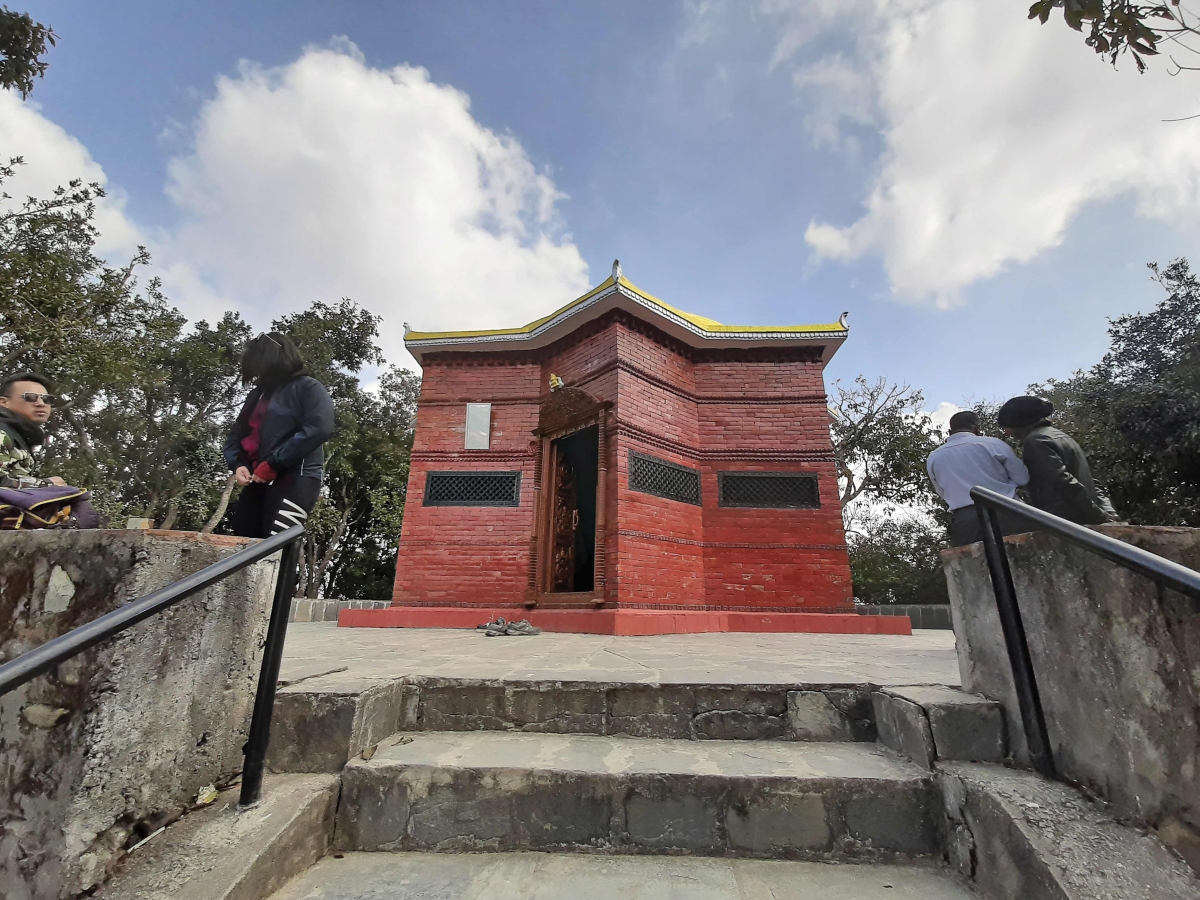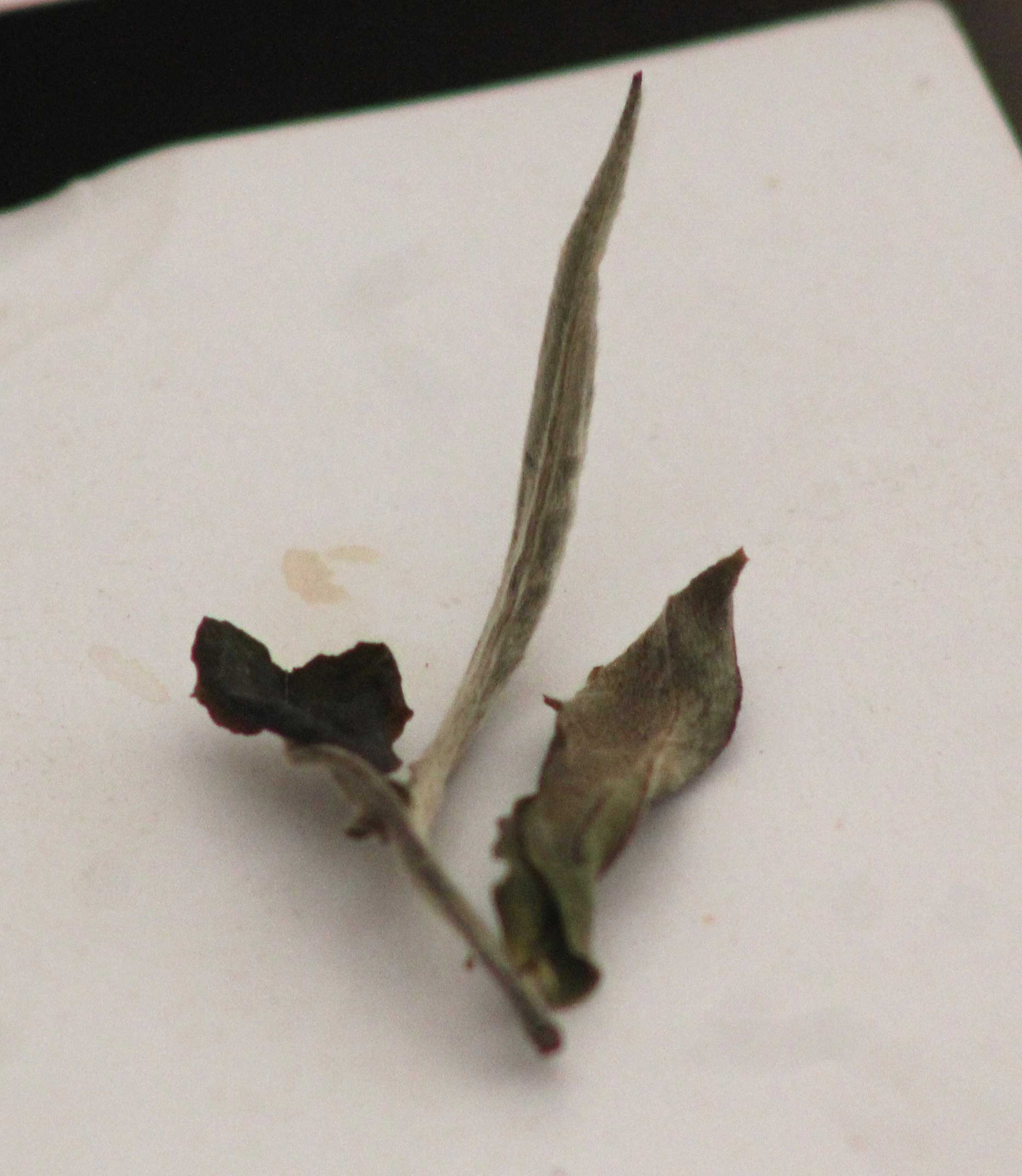Instituted in 1991, the B.P Koirala Foundation (BPFK) carries forward the legacy of B.P Koirala. The foundation aims at fostering the relationship between India and Nepal through a host of activities in the fields of literature, poetry, cinema, music, and research.
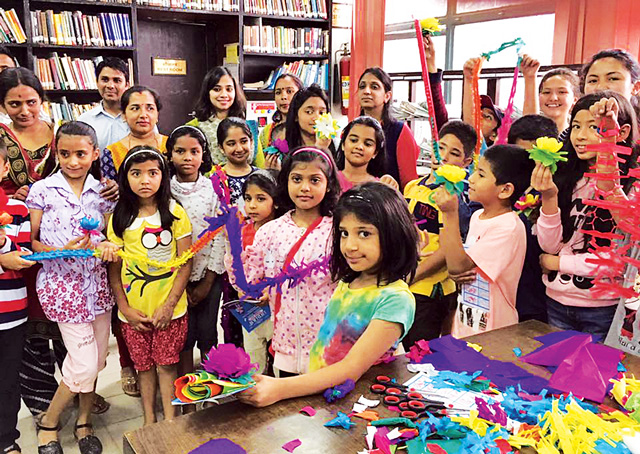
Very few do, and even fewer have had, as much positive influence in Nepali society as has Bishweshwar Prasad Koirala. Commonly known as B.P. Koirala, the first democratically elected prime minister of Nepal was an epitome of democracy. He was not only a charismatic and visionary political leader, but also a literary genius. He could depict the human mind in ways very few writers could. Literature was a key part of his life. He was one of the most widely read writers of Nepali literature. Koirala was a master at giving psychological insights into the human mind through the characters in his stories.
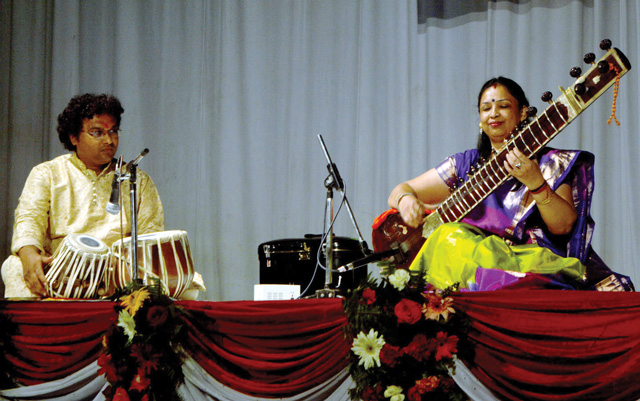 Doshi Chashma (Guilty Glasses), an omnibus of sixteen stories published in 1949, outlined human psychology, providing valuable insights into the everyday lives of the Nepali people. Existentialism was at the core of his literary work more particularly in Tin Ghumti (Three Turns). He also wrote many stories, poems, and political essays in Hindi, as well, which were published in Hindi literary magazines. Koirala was a great follower of Mahatma Gandhi. He gained his education in India, and while still a student, became involved in the Indian nationalist movement. He brought the same political zeal to Nepal, and was subject to detention and imprisonment. He continued writing, and his works were published as the Jail Journal, a diary kept by Koirala while he was locked up in the Sundarijal prison. Despite the stumbling blocks, he had the determination and perseverance to carry on and inspire the Nepali people.
Doshi Chashma (Guilty Glasses), an omnibus of sixteen stories published in 1949, outlined human psychology, providing valuable insights into the everyday lives of the Nepali people. Existentialism was at the core of his literary work more particularly in Tin Ghumti (Three Turns). He also wrote many stories, poems, and political essays in Hindi, as well, which were published in Hindi literary magazines. Koirala was a great follower of Mahatma Gandhi. He gained his education in India, and while still a student, became involved in the Indian nationalist movement. He brought the same political zeal to Nepal, and was subject to detention and imprisonment. He continued writing, and his works were published as the Jail Journal, a diary kept by Koirala while he was locked up in the Sundarijal prison. Despite the stumbling blocks, he had the determination and perseverance to carry on and inspire the Nepali people.
The B.P Koirala India- Nepal Foundation (BPFK), formed in 1991, carries forward the legacy of B.P Koirala. It was instituted by the Government of India and the Government of Nepal through a memorandum of understanding signed during the India visit of the late Girija Prasad Koirala, brother of B.P Koirala, and then Prime Minister of Nepal. Over the years, the foundation has undertaken a host of activities in the fields of literature, poetry, cinema, music, research projects, seminars, and academic exchanges. The foundation aims at identifying, recognizing, appreciating, and promoting the ties that exist between the two nations. It has endeavored to reach out to people and provide a platform for preservation and promotion of cultural and intellectual heritage between the nations.
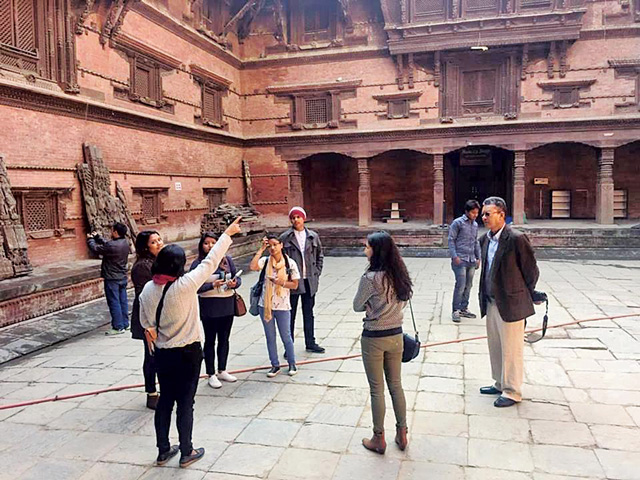 BPKF has worked intensively to preserve and promote literature through its various programs. The foundation encourages the translation of standard works of Nepali literature into Indian languages, and vice-versa, and arranging for their publication. Poemandu is a poetry recitation program initiated by BPKF. The program was inaugurated on March 2013 on the occasion of ‘World Poetry Day’ jointly by National Poet of Nepal, Madhav Prasad Ghimire, and former Chancellor of Nepal Academy, Shri Bairagi Kaila. ‘Poemandu’ features various poets from different regions of Nepal, reciting poetry in different languages, such as Nepali, Newari, Maithali, English, Urdu, and Awadhi. BPKF has organized 30 editions of Poemandu, till date.
BPKF has worked intensively to preserve and promote literature through its various programs. The foundation encourages the translation of standard works of Nepali literature into Indian languages, and vice-versa, and arranging for their publication. Poemandu is a poetry recitation program initiated by BPKF. The program was inaugurated on March 2013 on the occasion of ‘World Poetry Day’ jointly by National Poet of Nepal, Madhav Prasad Ghimire, and former Chancellor of Nepal Academy, Shri Bairagi Kaila. ‘Poemandu’ features various poets from different regions of Nepal, reciting poetry in different languages, such as Nepali, Newari, Maithali, English, Urdu, and Awadhi. BPKF has organized 30 editions of Poemandu, till date.
Similarly, BPKF has also made tremendous contribution to empowering women in the country. One of its initiatives included training 900 women over three months in public speaking and radio broadcasting skills. “The training helped the women understand how society could be changed through media. The women weren’t highly skilled or educated, but the training gave them confidence to put forward their ideas and opinions. There was active involvement of the Ama Samuha and other women groups,” said Durga Adhikari, the program coordinator.
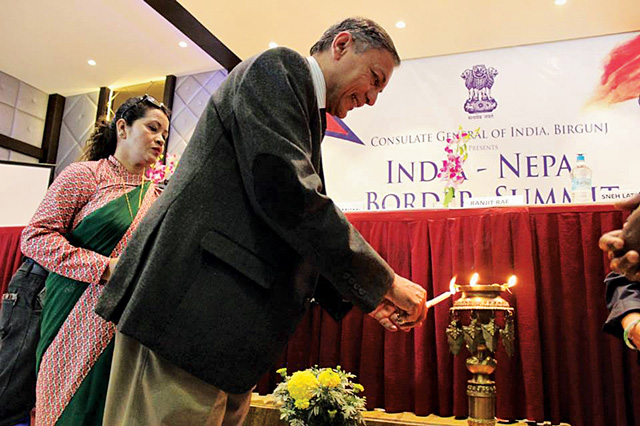
“The women who were scared to talk were speaking their heart out. They had no idea of how to hold a microphone, but once they learnt the art to communicate, they were very expressive,” said Aatma Tulachan of the local development committee. The participants of the program were over the age of thirty. “One of the participants was 60 years old, and although she was limited to household duties all her life, she was very natural on the microphone.”
B.P Koirala stressed on the importance of raising the awareness and consciousness of the people. And, over the 25 years, the foundation has reached out to all sections of the society in Nepal across many districts. BPKF has also done research work of contemporary significance. A feasibility study for a community-driven diary unit was conducted, wherein local dairy farmers in places such as Jhapa, Sunsari, Siraha, Morang, Janakpur, and Nawalparasi were educated. A similar visit of Nepali dairy farmers to Gujarat was organized to learn from the Amul model of cooperative dairy farming. The BPKF operates through its secretariats in the Nepal Embassy in Delhi and the Indian Embassy in Kathmandu. It operates under the supervision of a board whose co-chairpersons are the respective ambassadors in both the countries.
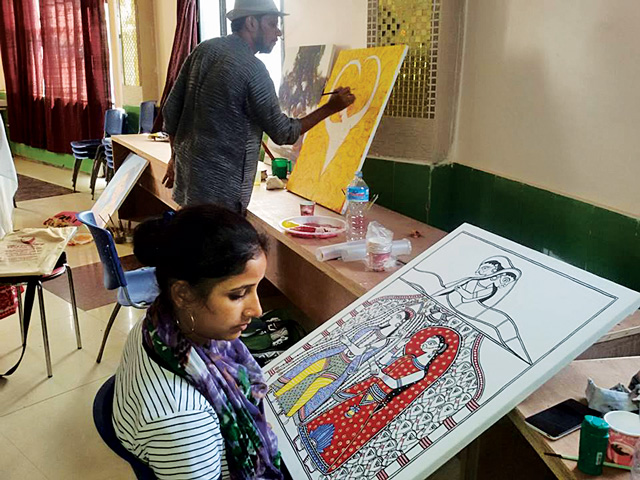
Love has no boundaries, they say, and the relationship between Nepal and India is a great example. Their relationship extends to having an open border between the two countries. There has been very strong cultural and historical ties between the two nations. ‘Kathmandu Varanasi Sangitik Sandhaya’, organized by BPKF earlier this year, brought together musicians of both the countries, and the audience enjoyed live musical performances by Nepali classical singers and musicians, as well as by Indian musicians of Varanasi.
Culture Nagari Program has been one of the more influential programs of the foundation, promoting various cultural art, music, and dance forms across the country. A Cultural Nagari Program was organized in Jomsom, highlighting the beautiful local traditions of Mustang. The Cultural Nagari Program held in Biratnagar focused on the Maithili and Santhali cultures, showcasing their unique art forms, theater performances, music, dance, and literary activities. The program also raised awareness regarding caste related discrimination. The Culture Nagari Program in Pokhara, a more metropolitan city, showcased contemporary music performance, live art, and poetry. There was active participation of youth in the program.
Recognizing the need to preserve the unique craft traditions of Nepal, the foundation organized the Indian-Nepal Craft Festival in April, 2015, where artisans and craftspeople from across the country showcased their products through the platform. BPKF also organized an exhibition of baskets made by Tharu women, with the intention of promoting and preserving the art of basketry.
The foundation’s various programs like Cinemandu, Poemandu, Voices, and Conversations, have become popular among the intellectual and literary circle, as well as students and youths from the universities and colleges located in Kathmandu Valley and outside.
Cinemandu
A popular initiative by BPKF, Cinemandu showcases both Nepali and Hindi cinemas and documentaries of different genres, including mainstream movies. The actors involved in the movies are also invited to the screening. B.P Koirala India-Nepal Foundation has screened 26 editions of Cinemandu, till date.
Voices
Voices is a talk program that was started in 2013. Several Indians and Nepali academicians, artists, literary figures, photographers, and other eminent personalities have delivered talks under this program. The talks are followed by interactive sessions, and have helped to highlight contemporary social issues.
Heritage Walk
The program involves a ‘walk’ along different heritage sites in different locations that help the participants to know more about the culture, crafts, architecture, and traditions of Nepal. An eminent personality enlightens the group regarding the history and cultural significance of the heritage sites.
Conversations
A talk series started since January 2013, it is popular among litterateurs and bookworms of Nepal. This program includes review of books by renowned writers, along with critiques. The author and the critique engage in an interesting review of the book, discussing its various dimensions, and literature in general.
Issues regarding child development and women empowerment have been raised through various programs by the foundation. It has more recently begun a special program series for kids to encourage them to engage in extracurricular activities. The program aims at conducting activities focused towards overall development of children. School children from the third grade to the eighth participated in the first workshop in the series, which was a paper art show.
The foundation has also been financing programs and activities such as seminars, symposia, colloquia, workshops, etc. on subjects of common interest since its establishment. BPKF supports research and educational activities in Nepal, and also finances visits and exchanges of scholars, writers, journalists, artists, professors, and other professionals in the field of education, agriculture, public health, science, and technology
The foundation has organized various programs recognizing the contribution of B.P. Koirala, including the production and staging of a play, “Sandaju Ko Mahabharat”. The play was staged by artists from Theatre Village on September 8, 2015, on the birthday of the late B. P. Koirala. W,ritten by Prof. Abhi Subedi and directed by Mr. Bimal Subedi, it was based on the life and contributions of B.P. Koirala as a writer, thinker, and statesman, and his role and participation in organizing the movement against the Rana regime, as well as against British India rule.
The B.P Koirala Foundation has conceptualized exploring different cultural aspects of the country, and holding movie screenings, poetry recitals, stage performances, and conversations in other cities of Nepal, as well, in the future. The foundation celebrated its 25th anniversary on December 17, 2016.



